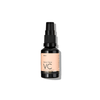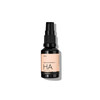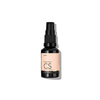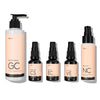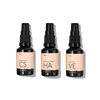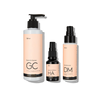5 Ways To Combat Dry Skin In Winter
While many people will suffer with dry skin year-round, it tends to be a problem that establishes itself within a wider base of people during the winter months. It also tends to be worse for people who seem to permanently struggle with dry skin throughout the winter. Chapped lips and hands, redness, soreness, rawness, itching and other issues become increasingly common and many of us quickly grow tired of the discomfort. These issues popping up one winter after another isn’t by coincidence. Skin tends to become dry when the skin struggles to retain sufficient moisture. In the winter, as the temperature drops, many of us will turn our central heating on, have more hot baths or longer, hotter showers and we may consequently use more soaps and other products on our skin too. All of these factors combined can make it difficult for your skin to retain moisture and can lead to drier skin and all of the symptoms listed above. So, what can you do to relieve dry skin in the winter? Here are a few ways to help you fight the dry skin in winter battle!

1. Stay Hydrated
First and foremost, you need to stay hydrated. It’s recommended that you drink eight glasses of water every day year-round and winter is no exception. During this time, people often switch to more hot drinks, such as teas, coffees and hot chocolates. This is fine. But make sure to get plenty of fresh water too! Drinking sufficient water will help to keep your body hydrated, including your skin. You should also try to eat plenty of hydrating foods that tend to have high water content. Good examples include melon, grapes, cucumber, celery and berries.
2. Develop a Skincare Routine
It’s highly recommended that everyone has a daily skincare routine anyway, but having one for the winter will really help to combat dryness. You should have a gentle face wash and toner, as well as a high-quality moisturiser. The moisturiser is the main product that will help your skin in terms of dryness. Moisturisers are specifically designed to rehydrate the epidermis and seal in the moisture that they provide. Most moisturising creams will contain three main ingredients - humectants, emollients and a combination of other ingredients. Humectants help to attract moisture to your skin. These can include ceramides, glycerin, sorbitol, hyaluronic acid and lecithin. Emollients will then smooth the skin by filling the spaces between skin cells. These can include linoleic, linolenic and lauric acids. Common additional ingredients often include petroleum jelly, moisturising oils and other ingredients that can prevent water loss from the skin.
3. Try Heavy Face Creams at Night
During the day, we don’t really want heavy creams on our face. They can give a slightly greasy appearance and makeup doesn’t tend to sit well on top of them. But why not try using a heavy face cream at night? These heavier creams can serve as heavy-duty moisturisers, offering your skin the best hydration possible.
4. Use a Humidifier
As we briefly highlighted above, a common cause of dry skin in the winter is central heating systems. Of course, you’re not going to want to switch the heating off and face the cold, but luckily there are other options out there. Invest in a humidifier and make sure to plug it in while your home is being heated. Humidifiers will help to infuse more moisture into the air, helping your skin to retain moisture rather than lose moisture while you stay warm.
5. Seek Specialist Help
If you find that you’re still experiencing difficulties with dry skin despite trying all of the above steps, you may want to seek help from a professional dermatologist. A dermatologist is a doctor who specialises in the treatment of skin, hair, nail and mucous membrane disorders and diseases. They may be able to help diagnose underlying health conditions that could be causing or worsening your dry skin and can recommend different skincare routines or products that could help you.
These are just five different ways to combat dry skin this winter. Different steps will work for different people. But by working your way through this list, you should give yourself the best chances of resolving any dryness you may be suffering from. It may take some trial and error to find what works for you, but all in all, it’s more than worth the effort to keep your skin in good condition and avoid discomfort!
